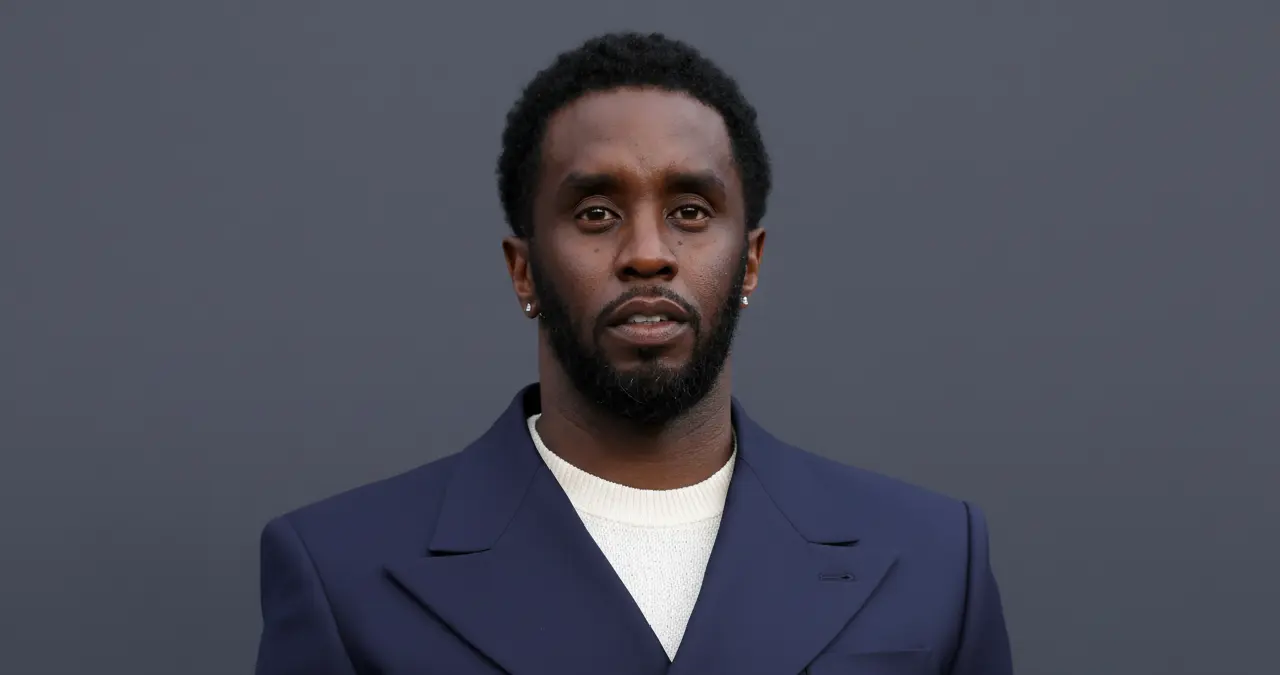When people ask “What’s P Diddy worth in 2025?” you get three answers depending on who’s talking. The most widely cited, conservative figure comes from Forbes and similar financial outlets: roughly $400 million as of mid–2024/2025 valuations. That’s a steep decline from peak public estimates that once placed him in the high hundreds of millions or even claimed billionaire status.
At the same time, many lifestyle and entertainment sites — often repeating earlier figures or using broader definitions of “assets + brand value” — sometimes still report numbers nearer $800M–$1B. So yes, numbers vary. But the careful, asset-by-asset valuation used by major business outlets currently points toward the mid-hundreds of millions.
Official estimates vs. public claims
Why this gap? Public claims (and PR) often factor in optimistic valuations for private companies, brand goodwill, and hypothetical future earnings. Financial outlets like Forbes tend to use a conservative mix of public records, known stakes, and market comparisons — and they adjust for debt and legal exposure. After high-profile legal troubles and business losses, Forbes’ revision downward is why the headline numbers look so different.
Why estimates vary so widely
Think of evaluating a celebrity’s net worth like appraising a house when the market’s shaky and some rooms are contested. If you include potential future income from brand deals that don’t yet exist, you get a much higher number. If you discount for legal risk, mortgages, and severed partnerships, the number falls. Both approaches are “right” for their purpose — one optimistic, one cautious.
The Early Hustle: Music, Bad Boy, and the Royalties Engine
Sean “P Diddy” Combs’ money story begins in the studio and in the executive suite. He moved from producer to label founder with Bad Boy Records, which launched the careers of artists whose catalogs would become long-term cash machines.
From intern to mogul: the Bad Boy origin story
Starting in the early 1990s, Bad Boy built an A&R-driven engine: Puff produced hits, signed stars, and collected publishing and producer points. Over decades, even when artists leave, the owner of the label or the publisher can retain lucrative rights. That’s music-business 101: hit songs become recurring revenue for decades. Bad Boy’s catalog and Combs’ production credits are foundational to his long-term income.
How royalties and catalog value work
Every stream, sync placement (music used in ads/films), radio play, and mechanical royalty is money in the bank. Catalog valuation firms look at historical earnings and project future income, then discount it to a present value. That’s why one or two blockbuster songs can make a catalog worth tens of millions.
Big Brand Moves: Clothing, Liquor, and Lifestyle
Combs treated his celebrity as a platform and launched businesses that could scale beyond music.
Sean John and fashion licensing
Sean John, his menswear brand, was a genuine early win: licensing deals and retail distribution brought both cash and credibility. Even if a fashion line’s sales slow, legacy licensing payments and brand recognition carry residual value.
The Cîroc and DeLeón stories
Perhaps his most famous commercial partnership was with Cîroc vodka — a long-term ambassadorial and revenue-sharing relationship that reportedly paid very well while it lasted. Later, Combs moved into tequila with DeLeón. These beverage deals were high-margin and helped fuel the “entrepreneur” narrative that pushed his net worth estimates upward when the partnerships were active.
Media & Tech Bets: Revolt, TV, and Streaming
Why Revolt mattered strategically
Revolt TV and related media ventures were less about immediate profit and more about vertical integration — owning content distribution to amplify his brands and artists. While Revolt gave cultural cachet and reach, independent media ventures often need more capital than they return early on. Still, equity in a media network has upside, especially as streaming ad markets evolve.
Digital royalties and platform revenue
Owning a platform can boost licensing negotiations and give preferential placement to your catalog. Those synergies help explain why entertainers invest in media — it’s not always direct cashflow at first, but a strategic play for long-term value.
Real Estate and Tangible Wealth
Mansions, mortgages, and leverage
Diddy has owned high-value homes in Los Angeles, Miami, and elsewhere. But luxury real estate can be a double-edged sword: it’s valuable on paper, but it often carries big mortgages and maintenance costs. Reports in 2024–2025 highlighted large mortgage liabilities tied to several properties, which factor into net-worth calculations and can reduce the headline number when carefully tallied.
What happens to property values during legal trouble
Properties tied to legal investigations can complicate sales (creditors, liens, and media attention), and leveraged purchases mean a decline in property market value or forced sales can erode net worth quickly.
The Legal Squeeze: How Lawsuits & Indictments Shift Net Worth
Civil suits, settlements, and legal fees
Over recent years, Combs faced multiple civil claims. Settlements, if paid, come directly off liquidity and can be sizable. Even defending cases costs millions in legal fees, which reduces available cash and forces asset reallocation. Journalistic investigations and reporting also noted settlements and payouts that likely affected his net position.
Criminal charges, asset risk, and practical outcomes
Criminal indictments and federal investigations don’t automatically strip assets, but they can sever partnerships (brands drop deals), cause investors to pull back, and trigger covenant issues with banks. In Diddy’s case, while some acquittals protected him against broad RICO forfeiture, convictions on specific counts can still carry fines, settlements, and other financial consequences. The practical result: greater uncertainty, less ability to strike big new deals, and downgrades from conservative financial analysts.
The Numbers Deep Dive: Forbes, Media, and the Billionaire Question
Forbes’ 2024/2025 valuation
Forbes — which historically tracked Combs’ wealth closely — estimated his net worth around $400 million in their mid-2024 valuation after accounting for debt, severed deals, and litigation exposure. That figure is the anchor most financial journalists use when they want a cautious, verifiable number.
Why some outlets still call him a billionaire
Entertainment sites and smaller outlets sometimes report older valuations (e.g., $700M–$1B) or include optimistic valuations of private holdings and brand potential. Public relations teams also occasionally assert higher figures for perception; without access to private balance sheets, outside reporters can legitimately differ. The upshot: if you want conservative accuracy, use a Forbes-style accounting. If you want PR-friendly headlines, expect larger numbers.
Revenue Streams Today: What’s Still Making Money
Even with legal friction, Diddy’s core cash machines continue to exist — albeit with mixed momentum.
Music royalties and publishing
Music is slow money but reliable. Streaming, syncs, and legacy airplay continue to generate royalties. Those long-term cash flows underpin much of the value of his catalog and production credits.
Brand royalties and equity stakes
Even if some deals ended, stakes in beverage lines and fashion over the years created pockets of cash or recurring royalties. The ecosystem of brand deals can be restructured; some are ongoing, some terminated.
Investments and passive income
Private investments, minority stakes in startups, and alternative assets (art, cars, collectibles) add diversified value. Those are harder for public outlets to verify and therefore often vary wildly between estimates.
What He Sold, What He Kept: Exits and Retained Assets
Past exits that created liquidity
Strategic exits — partial sales of brands or licensing agreements — provided liquidity at key points. Smart exits (sell high, keep a royalty) are classic celebrity-entrepreneur moves that can fund new ventures or pay down debt.
Assets likely untouched by litigation
Not all assets can be seized easily. Intellectual property (depending on ownership structure) and some retirement vehicles are shielded in ways that real property is not. That nuance explains how someone can remain “wealthy” even while facing legal and reputational losses.
Reputation vs. Balance Sheet: The Intangibles That Affect Value
Brand equity, partnerships, and sponsorships
Your reputation influences what brands want to do with you. After legal controversies, sponsorships and partner goodwill can evaporate quickly — a near-term erosion of potential earnings that doesn’t always show up immediately on a balance sheet but matters for future value.
The cost of lost deals
Losing a global liquor partner or a high-profile brand ambassador gig doesn’t just cut present cashflow — it removes a multiplier effect for future ventures. That intangible hit helps explain why valuation firms discount aggressively after reputational events.
Lessons from Diddy’s Financial Journey
Diversify creatively
Combs’ playbook shows the power of diversification: music, fashion, spirits, media, and real estate. That diversification created multiple income pillars and made his rise possible.
Leverage can be a superpower and a trap
Using debt to buy trophy properties or grow media holdings can amplify returns — until market swings or legal liabilities make leverage a liability. Managing risk is as important as finding growth.
What to Watch Next: Triggers That Could Move the Number
Court outcomes and settlements
Future legal settlements, appeals, or enforcement actions could materially change the picture. Favorable outcomes preserve assets; large settlements or judgments drain them.
New deals, catalog sales, or brand returns
A major catalog sale or a new beverage/brand deal could inject cash and push public estimates upward. Conversely, permanent loss of partners would keep numbers depressed.
Final Takeaway: Where P Diddy Stands in 2025
In plain English: P Diddy remains wealthy, but his headline number fell from the lofty heights previously claimed. As of the most rigorous, conservative valuations used by outlets like Forbes, his net worth in the mid-2020s sits in the low-to-mid hundreds of millions (commonly reported around $400M) after accounting for debt, legal exposure, and lost partnerships. Other outlets and PR narratives sometimes show much higher figures by including optimistic private valuations and potential future income, but those are speculative.
That said, the machinery he built — music catalogs, brand instincts, and a recognized global name — still holds significant long-term value. The difference between billionaire headlines and careful valuation is often a matter of what you count and how you discount for risk. In Diddy’s case, the conservative accountants are currently demanding bigger discounts.
Conclusion
P Diddy’s financial arc is a classic modern-creator saga: enormous creativity and strategic deals produced generational wealth, but leverage, legal exposure, and shifting partnerships can erode headline status quickly. The precise 2025 number depends on whether you accept PR-friendly, optimistic valuations or conservative, asset-and-debt-based accounting. The latter places him in the hundreds of millions, while the former sometimes still pushes toward billionaire territory. Bottom line — he built an empire, but the empire’s public valuation is far more contested today than it used to be. Keep an eye on legal developments and any major catalog or brand deals — those will be the levers that move the public number next.
FAQs
Most conservative financial outlets (e.g., Forbes) did not list him as a billionaire in their 2024–2025 valuations; they estimated roughly $400 million after adjusting for debt and legal exposure. Some entertainment outlets and PR references still claim higher figures, which reflect different (more optimistic) valuation methods.
His long-term income drivers are music royalties and catalog earnings, brand and beverage deals (historically Cîroc, DeLeón), revenues from Sean John (fashion/licensing), media stakes (Revolt), and real estate and private investments.
Legal issues — including civil suits, settlements, and criminal indictments — contributed materially by increasing expenses, severing partnerships, and prompting conservative revaluations by financial outlets. These factors pushed some valuations down significantly.
It’s possible if he negotiates new lucrative deals, sells part of a music catalog at a high price, or successfully appeals/limits legal liabilities. However, reputational damage and ongoing litigation make a rapid rebound harder.
For conservative, finance-focused estimates, trust outlets like Forbes that disclose methodology and account for debt and verified holdings. Entertainment sites and PR pieces can be useful for context but often present optimistic numbers. Always check multiple reputable sources and consider whether they factor in debt and legal exposure.


Jaylin Khan